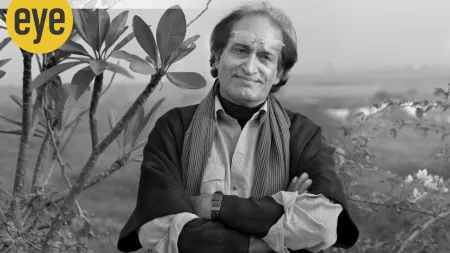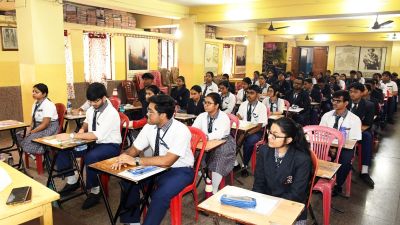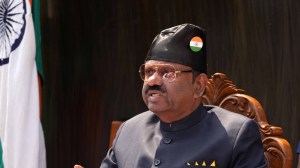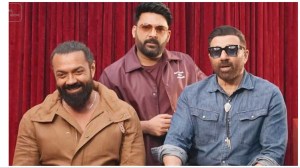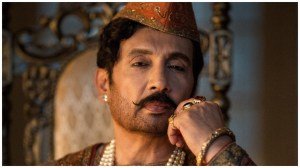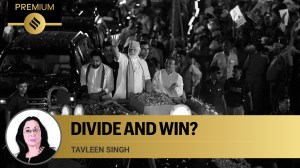- India
- International
Fifth Metro: The retreat of Nandan Nilekani
He has withdrawn from politics. And thereby hangs a tale.
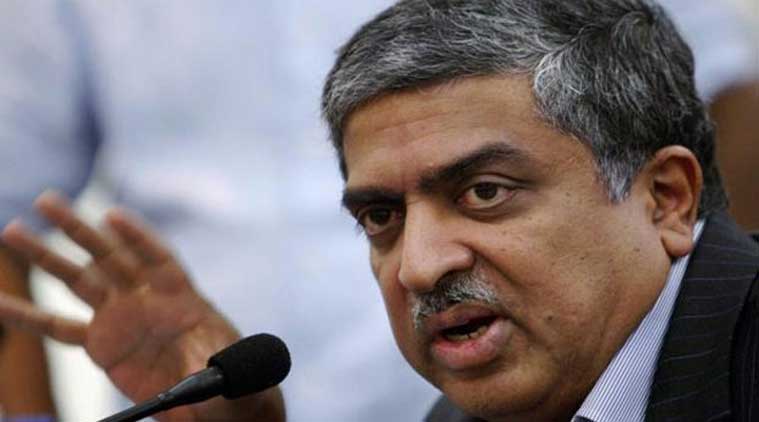 Nandan Nilekani
Nandan Nilekani
Infosys co-founder and Bangalore billionaire Nandan Nilekani entered politics last March, joining the Congress with much fanfare. It was the first instance in post-liberalisation India of a high-flying entrepreneur and corporate tycoon getting into politics. The Congress soon declared that Nilekani would contest from the prominent Bangalore South Lok Sabha constituency on its ticket, making him the focal point of much national and global media attention.
Nilekani mounted a fierce enough election pitch, by far the most-organised modern election campaign, combining data analytics and social media with the more traditional door-to-door visits and street-corner meetings. But, in a geography that likely has the highest concentration of Infosys and IT industry employees, the former Infosys chief executive officer lost the election by an embarrassingly wide margin. The political wind was just not blowing in his, or his party’s, favour.
[related-post]
Since then, Nilekani, who is 60 years old, has withdrawn from politics, other than the rare networking with party circles — mainly his connections from his days as the Unique Identification Authority of India chief — in Delhi. His sole meeting with Karnataka Chief Minister Siddaramaiah, where he offered to work for the state and for Bangalore, did not get him the desired response. Nothing came of it even months after the meeting, and Nilekani appeared to be a political misfit.
A year on, Nilekani has just announced his dormant status in politics. He has not quit the Congress party, he said, but has become “inactive”. What exactly does “inactive” mean? It just means inactive, says Nilekani, appearing a little uncomfortable about elaborating any further.
Nilekani had this to say about why he came into politics: “I joined politics because I wanted to see if I could bring change from within. I chose to contest a Lok Sabha election because I wanted to enter Parliament directly through an electoral route.” And this about why he has become inoperative: “I realise that I can contribute to public life outside of politics as well.”

Any long-time corporate executive, even a very rich one, would baulk at some of the requisites of election-time politicking, such as buying votes, for instance — reportedly, a common practice among some candidates. Politics has long been seen by many as a murky business that calls for cutting deals with religious leaders and local thugs. Then too corporate leaders may not be cut out for the 24 hours a day, 365 days a year engagement that is politics. Just as full-time grassroots-level politicians do, aspiring ones from corporate India too have to eat, drink and sleep politics. Nilekani’s quick entry and exit will reinforce the idea that politics may be too grimy and exhausting for many.
“We need lots of good people to join politics, party or affiliation does not matter,” says Trilochan Sastry, a professor at the Indian Institute of Management, Bangalore, and founder of the Association of Democratic Reforms, an NGO that fights for transparency in politics. But where are the aspirants? Nilekani’s peers, like entrepreneur Captain G.R. Gopinath, who contested as an independent in 2009, or Infosys colleague V. Balakrishnan, “Bala”, who contested in last year’s Lok Sabha election on behalf of the Aam Aadmi Party, do not play any active role in day-to-day politics. They were all fleeting stars who appeared at election time and departed quickly thereafter.
In Bangalore, many thought that politics would give Nilekani a third public innings, after successful turns as co-founder and chief executive officer of Infosys and then as the head of the Congress-led UPA government’s unique identity programme. But the third shift turned out to be a debacle. Since then, Nilekani has retreated to do what he knows best — consulting with Bangalore’s startups and launching EkStep, a social enterprise that aims to deliver elementary education in a personalised way to millions of Indian children through mobile devices. His fellow founders at Infosys, including the renowned N.R. Narayana Murthy, S.D. Shibulal and Kris Gopalakrishnan, also in their sixties, have all receded into semi-retirement, mostly tending to their wealth and investing in startups. But is 60-plus any age to relinquish active career roles?
saritha.rai@expressindia.com
EXPRESS OPINION
More Explained
May 05: Latest News
- 01
- 02
- 03
- 04
- 05







